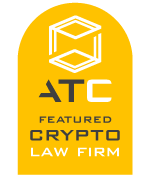
Thinking about buying or selling digital, or “cryptographic” assets such as Bitcoin, Ethereum and other cryptocurrencies? Does your business already deal in digital assets? Regardless of whether you’re an investor or a business owner, you should be aware of your potential tax liability when managing your Digital Asset portfolio. Read on to learn more!
What is a “Digital Asset”?
A Digital Asset is a cryptographic, often Blockchain-based, unit of value that is exchanged through a decentralized ledger system, based on cryptographic verification as opposed to a traditional third-party verifier such as a bank. “Blockchains” are decentralized payment systems, which allow parties to transfer and verify value exchanges directly, without the need for an intermediary.
Digital Assets are also called “Coins” and “Tokens”. Coins operate on their own Blockchain, store value and can be thought of as an asset intended to replace government-created, or “fiat”, currencies. Tokens are typically Digital Assets that convey information or value on a Blockchain platform created for a specific purpose.
Tax Treatment of Digital Assets
The way that a transaction involving a Digital Assets is taxed depends on the nature of the transaction. One way the proceeds of disposition of Digital Assets purchased and held for investment may be viewed is as a capital gain. For example, when cryptocurrency that has increased in value is subsequently sold for fiat, the gain will be included in the calculation of an individual’s income for tax purposes in accordance with the current capital gains inclusion rate. On the other hand, when Digital Assets such as cryptocurrencies are exchanged for goods or services, or different cryptocurrencies are exchanged, any gains or losses associated with these transactions may be taxed as business income or barter income. Furthermore, cryptocurrency that is sold for fiat currency will be recognized as business income if trading volumes are frequent and short-term profits are consistently realized. Any profit that is made is fully taxable as business income, subject to any allowable deductions for business expenses. While business income is fully taxable, presently only 50% of capital gains are subject to tax, therefore making it more desirable to handle your Digital Assets in a manner that will trigger capital gains.
Barter transactions occur when goods are exchanged for other goods instead of for fiat money. If this is done in the course of business, the fair market value of the goods being exchanged are included in the income of each respective participant in the transaction. For example, if a dentist agrees to perform dental services worth $1500 on a carpenter who, in exchange, offers to build a new deck worth $3000 for the dentist, the dentist must include $3000 in her income while the carpenter must include $1500 in his. In the case of Digital Assets: if an individual trades cryptocurrencies on a daily basis as her primary source of income then every trade could trigger a taxable event, even if no fiat currency was received. This results in a tax liability on the part of the trader even though she didn’t actually realize any gains, which is problematic.
As one of Canada’s earliest law firms specializing in the tax treatment of Digital Assets, the lawyers at Grinhaus Law Firm have the knowledge and expertise required to properly structure your crypto and Digital Asset business and holdings and mitigate your tax consequences. If you are looking to buy, sell or structure Digital Asset holdings, call or email us right away to give you peace of mind regarding your tax liability.
You may also consult with the book published by our founder, Aaron Grinhaus entitled A Practical Guide to Smart Contracts and Blockchain Law (Toronto: LexisNexis Canada Inc., 2019).
PLEASE NOTE: THIS IS NOT INTENDED TO BE LEGAL ADVICE AND SHOULD NOT BE RELIED ON AS SUCH. IT IS IMPORTANT THAT YOU CONSULT WITH A LICENSED PROFESSIONAL.



